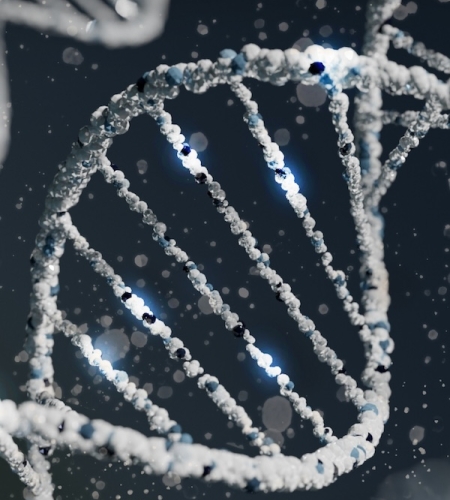
Biotechnology, B.S.
The biotechnology major explores the intersection of biology and technology to solve real-world problems in innovative ways, with the overall goal of enhancing human life and environmental stability. Students in this major will have the opportunity to expand their knowledge in the power of living organisms, cells, and molecules to develop innovative solutions across various industries. It’s all about using living things – like cells and bacteria – along with DNA and advanced technology to create new products and processes that benefit people and the environment.
Program Overview
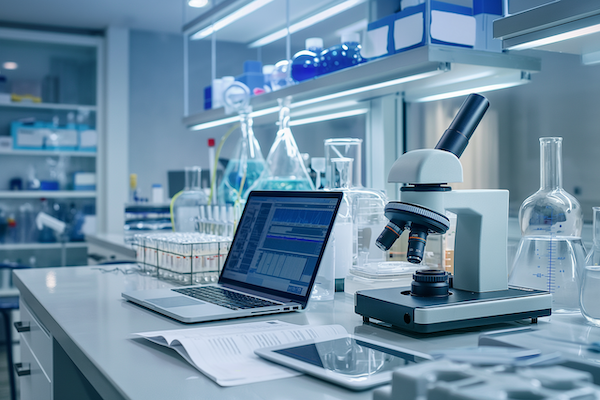
Biotechnology is not just about science in a lab. It's about making a meaningful difference in the world. Whether you’re just beginning your journey or looking to expand your skills, our program equips you with hands-on experience, cutting-edge knowledge, and the foundation for a rewarding career in the life sciences.
Our interdisciplinary curriculum combines biology, chemistry, genetics, and data analysis with training in current laboratory technologies. You’ll gain the technical and professional skills needed to work in research, healthcare, biopharma, agriculture, or environmental science.
Program Director
Geoff Toner, MS, MBA
gtoner@holyfamily.edu
About Biotechnology
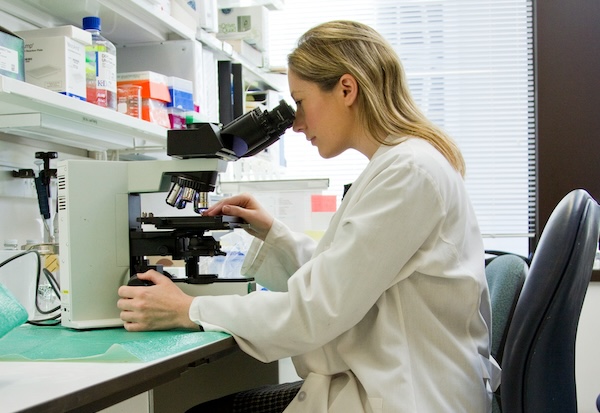
Biotechnologists apply scientific and technical skills to engineer biological systems for practical applications. Types of work may include:
- Using engineered enzymes to create environmentally friendly industrial processes
- Designing diagnostic tools that detect diseases faster and more accurately
- Applying genetic engineering to create cells that manufacture life-saving vaccines and therapeutic proteins
- Applying molecular biology to develop targeted cell and gene therapies
- Harnessing cell culture and bioprocessing to manufacture antibodies to treat cancer, insulin to treat diabetes and many other therapeutic modalities.
- Utilizing bioinformatics and data analytics to uncover new drug targets and optimize production systems
- Engineering microbes to “upcycle” waste streams into valuable products.
- Improving agricultural yields and pest resistance through plant biotechnology
- Conducting research to understand disease mechanisms, cellular responses and innovative treatment options
Program Learning Outcomes
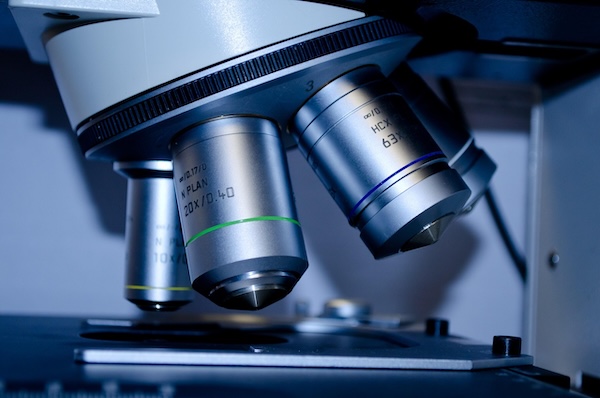
- Foundational Knowledge: Demonstrate a comprehensive understanding of core concepts in biotechnology including molecular biology, cell biology, genetics, and chemistry.
- Technical Proficiency: Acquire and apply laboratory skills essential for biotechnology, conduct precise and accurate benchwork.
- Communication Skills: Exhibit proficiency in scientific communication, both written and oral, to effectively convey complex biotechnological concepts to diverse audiences.
- Problem-Solving and Innovation: Utilize critical thinking and analytical skills to develop innovative solutions for complex biological and technological problems.
Degree Requirements
The Biotechnology major requires the completion of 121 total credits, including 45 credits of General Education coursework in which students are strongly encouraged to complete MATH 150 to satisfy the mathematics requirement. The major also includes 61 credits of required courses specific to Biotechnology, as well as the opportunity for students to select 12 credits of unrestricted electives and 3 credits of free electives.
Core Curriculum
- BIOT 201 – Foundations of Biotechnology (4)
- BIOT 202 – Intro to Reg. Affairs & Quality Sys. (3)
- BIOT 203 – Bioinformatics & Data Analysis (3)
- BIOT 302 – Cell Culture & Bioprocessing (4)
- BIOT 304 – Analytical Methodology (4)
- BIOT 305 – Frontiers in Biotechnology (3)
- BIOL 360 – Biotechnology Internship (3)
- BIOT 401 – Biotechnology Capstone (2)
Career Paths
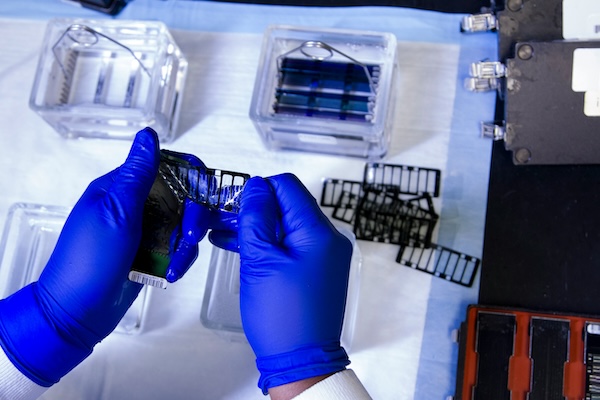
- Research Associate – Plan, execute and trouble shoot experiments / analyze data
- Quality Control (QC) Specialist – Test raw materials and finished products to ensure safety and effectiveness
- Quality Assurance (QA) Specialist – Review batch records and GMP documentation
- Manufacturing Associate – Complete production of biologics and vaccines in a GMP environment
- Process Development Associate – Support scale-up and optimization of bioprocesses
- Cell Culture Technician – Maintain and expand mammalian or microbial cell lines
- Microbiology Associate – Perform sterility, bioburden and endotoxin testing
- Validation Associate – Execute equipment and process qualification protocols
- Clinical Research Coordinator – Assist with clinical trial logistics and documentation
- Regulatory Affairs Specialist – Navigate the legal and ethical considerations behind biotech product development and approval
- Environmental Monitoring – Sample clean rooms and controlled environments
- Bioinformatics Scientist – Analyze biological data using computational tools
- Materials Management – Control inventory and flow of GMP materials
- Field Operations Technician – Provide technical product support to customers
- Analytical Development Associate – Run biochemical assays and instrument-based testing
Program Information
- Degree Awarded
-
- Bachelor of Science
- Program Type
-
- Major
- Program Location
-
- Main Campus - Northeast Philadelphia
